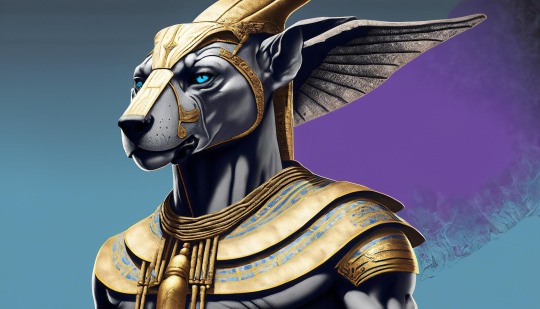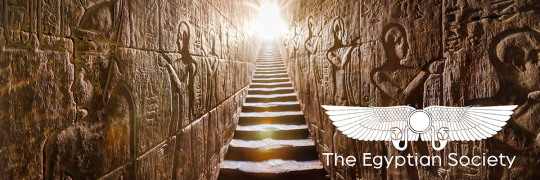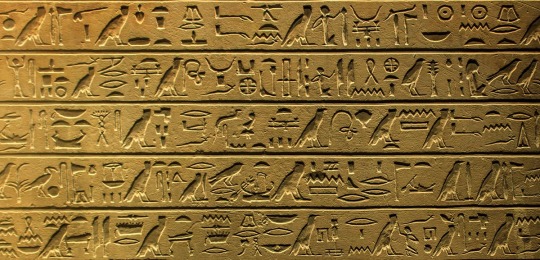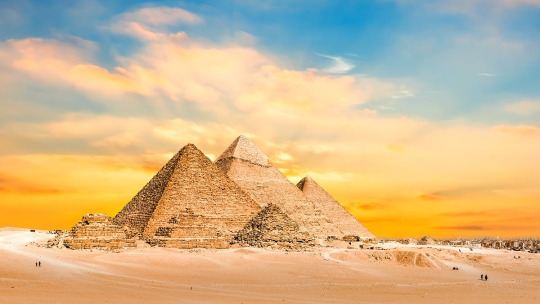#KemetianSociety
Text
The Importance of Worshiping Egyptian Gods and Goddesses in the Modern World









The Importance of Worshiping Egyptian Gods and Goddesses in the Modern World
The Egyptian Society: Anubis ‘God of the Afterlife’- Oracle: Andrew Rogers
“Hello my name is Anubis I look after the dead and all funerary practices when you die you travel to me and have judgement on your life this is important, it is important that you lead a good life so when you are judged upon death you transcend to the afterlife, in ancient times I was worshipped quite widely and there was much to do people feared me, in the modern times things are different after Egypt was taken over by its enemies then the process noted in the Book of the Dead was ceased, new religions came to the force and a lot of history was lost, but I still undertake my responsibilities each day. I am interested in the modern people who worship the Egyptian Gods and Goddesses and are aware of the Book of Dead, it is extremely important that we have the modern person worshipping and learning about the Egyptian Gods and Goddesses, be careful in life and be love, practice daily and we will meet when you journey to the location of your afterlife” Anubis ‘God of the Afterlife’
Anubis, the God of the Afterlife, continues to fulfill his sacred responsibilities, even in these modern times. Although the worship of ancient Egyptian deities has diminished over the centuries, there are still individuals who honor and study the teachings of the Egyptian Gods and Goddesses.
While Egypt has faced various challenges throughout its history, including foreign invasions and the rise of new religions, Anubis remains steadfast in his role as the overseer of the dead. The ancient practice of judgment after death, as described in the Book of the Dead, may have faded away, but the significance of leading a virtuous life remains paramount.
Anubis seeks to connect with those who are familiar with the knowledge preserved in the Book of the Dead. Their understanding of the Egyptian pantheon and their dedication to learning about the ancient ways is crucial. By embracing love and practicing daily, these modern followers ensure a future meeting with Anubis when they embark on their journey to the afterlife.
Let us remember Anubis, the guardian of the dead, and appreciate the importance of spirituality in our lives. May we all strive to live virtuously and be mindful of the ancient wisdom that Anubis embodies.
Anubis ‘God of the Afterlife’
Anubis, the jackal-headed god of ancient Egypt, has fascinated people for centuries with his mysterious role as the guide of souls into the afterlife. From the First Dynasty to the Middle Kingdom, Anubis played an important role in Egyptian society as the god of embalming, weighing of the heart, and ushering of souls into the realm of the dead.
Despite being one of the most ancient and frequently depicted gods in the pantheon, Anubis played almost no role in Egyptian myths. However, his significance was far-reaching, as he represented the power of death and rebirth, and his black color symbolized the discoloration of the corpse after embalming as well as rebirth.
Anubis was often associated with Wepwawet, another god portrayed with a dog's head or in canine form, but with grey or white fur. Together, the two figures were believed to have guided and protected the deceased on their journey to the afterlife.
Anubis also had a female counterpart, Anput, and a daughter, Kebechet, who was the serpent goddess of purification. The myths and legends surrounding Anubis may have faded over time, but his enduring presence in Egyptian culture is a testament to his importance and influence on ancient beliefs and practices.
Anubis' image can be seen in various ancient Egyptian art forms, including reliefs, sculptures, and paintings. His iconic canine head, black fur, and slender body make him instantly recognizable. Anubis was an integral part of Egyptian funerary rituals, and his presence ensured that the dead received proper burial and were guided to the afterlife.
Despite not having a significant presence in Egyptian mythology, Anubis remains one of the most iconic and recognizable figures from ancient Egyptian culture. Today, his image is often used in popular culture, from movies to video games and even tattoos. It just goes to show the enduring legacy of ancient Egyptian beliefs and practices, and the lasting impact they have had on the world.
The Egyptian Society
Andrew Rogers: Founder, Egyptian Auteur, Creative Director, Writer, Oracle
All images, text, design, and art license owner Andrew Rogers©.
#ai#andrewrogers#auteur#destroyer#egypt#egyptian#egyptianauteur#godofdeserts#godofthesun#instruction#Anubis#AnubisGodOfAfterlife#EgyptianBeliefs#KemetianSociety#BookOfTheDead#OracleWisdom#EgyptianAuteur#MotivationFromAncientEgypt#InspirationFromAnubis#QuoteFromAndrewRogers#LeadAGoodLife#Egypt#Egyptian#Ra#Sekhmet#Set#AndrewRogers#TheEgyptianSociety#Motivation#Instruction
13 notes
·
View notes